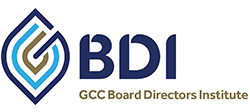 Widening fiscal deficits, rising populations, and high youth unemployment, coupled with a subdued global economy and a rapidly changing global energy mix, are encouraging Gulf Cooperation Council (GCC) countries to reassess their strategic economic policies to ensure future generations continue to enjoy the benefits of economic security.
Widening fiscal deficits, rising populations, and high youth unemployment, coupled with a subdued global economy and a rapidly changing global energy mix, are encouraging Gulf Cooperation Council (GCC) countries to reassess their strategic economic policies to ensure future generations continue to enjoy the benefits of economic security.
Historically, these governments have been dependent on hydrocarbons to achieve their socio-economic development ambitions. That is no longer the case. Today, forward looking GCC governments are implementing necessary structural reforms to decouple their economies from oil to encourage domestic GDP diversification and non-oil private sector development to ensure stronger, sustainable, and inclusive growth. This is creating challenges for international and multi-national corporations who are being forced to rethink their business investment models, in order to demonstrate ‘In-Country Value’, or what I like to call the ‘license to operate’.
In-Country Value policies are particularly relevant in the extractive industries, as they allow countries to gain additional benefits to the economy beyond the direct contribution of selling their oil and gas or minerals. Until recently, most international oil and gas and mining companies viewed local content as part of their corporate social responsibility agenda. But a plethora of new government policies and regulations are redefining the traditional ‘sell-buy’ relationship, shifting the creation of domestic value into the realm of a strategic priority in support of long-term, sustainable economic growth. The Kingdom of Saudi Arabia and the United Arab Emirates are prime examples, where the focus of In-Country Value programs is on maximizing the use of national manpower; the utilization of local products, manufacturing and assembly facilities and encouraging the use of local infrastructure.
I believe other regional governments and different industrial sectors, including our own, can learn from this approach, and that it can be used to underpin successful stakeholder engagement and communications. Recently, a Royal Order was issued in Saudi Arabia banning the award of government contracts to foreign consultancies, except those consultancies who give weight to Saudi expertise. At APCO, we have been careful in our planning, having set up an office in Riyadh and bringing in top-tier Saudi talent into our fold. Yes, we have some way to go. But we are on track and are fully aware that we must practice what we preach.
The In-Country Value of talent programs is no longer a box ticking exercise, or a CSR activity to hire a few nationals, or work with local entities on a project. The basic element of In-Country Value thinking is that mutually beneficial partnerships and long-term relationships should be based on a transparent and open relationship that provides the foundation of economic and social value creation. It is about how businesses holistically support their operations in a way that is strategic, such as investing in knowledge and skills transfer through training programs that sustainably grow local talent organically. For international corporates there is the added layer of how they are engaging with their local private sector partners as well.
It is only a matter of time before elements of the In-Country Value programs, utilized by GCC energy companies, are adopted by other government entities in a manner that positively impacts the wider domestic economy. A one-size-fits-all approach is not practical. But well-thought out, tailored ICV programs, offer opportunities for corporates, across the economic spectrum, to implement business strategies that not only ensure their own sustainability, through increased revenues and profitability, but also positively impact the societies within which they operate.
The economic priorities of the Gulf countries are clear for all to see. Diversification away from oil is key to delivering long-term development goals and continued prosperity, despite the commercial and political challenges. National business environments are constantly evolving, providing a window of opportunity for corporates to demonstrate proactive leadership by engaging with policy makers on how they can contribute tangible and sustainable in-country value to GCC countries. Those that do not do so, will lose their ‘license to operate’. Those that seize the opportunity will enhance their leadership positioning, reputation and, crucially, their business sustainability.
————————————————————————————————————
Mamoon Sbeih, is President of APCO MENA. He leads 4 regional offices supporting major government and corporate clients on the full range of strategic communications. He specializes in C-Suite and senior government advisory, crisis communications as well as media relations training in English and Arabic. Mamoon spent ten years with the World Bank. He earned his bachelor’s degree in Electrical and Electronics Engineering from the University of Salford and holds a Masters in Development Management from the University of Turin.



COMMENTS ARE OFF THIS POST